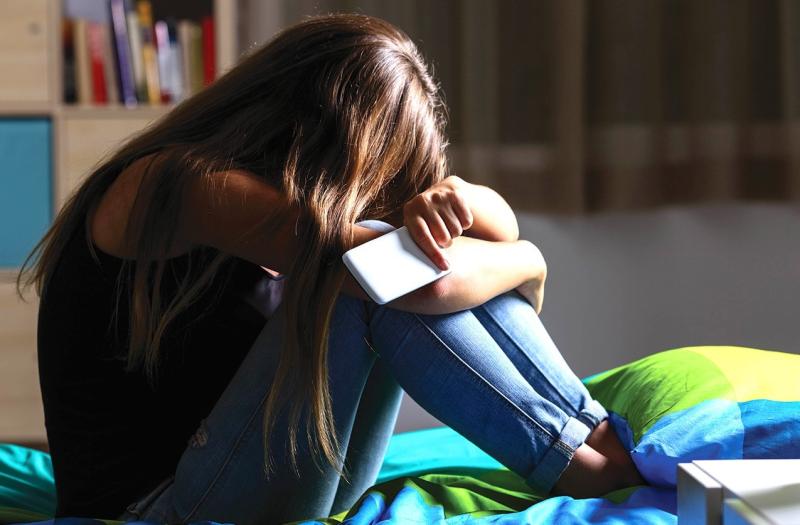Combating negative effects of technology on youth mental health
With technology part of daily life, parents and teachers often must try to keep kids’ attention on the real world instead of the digital one. Some ways were outlined in the final installment of a three-part series on psychologist Jonathan Haidt’s book “The Anxious Generation” (2024).
The lecture was led by writer and clinical psychologist Joe Moldover, and hosted by a collaboration of Boothbay Harbor Memorial Library (BHML) and other state libraries.
The talk’s two prior sections focused on the connection between social media and downward trends in youth mental health among Gen Z (born 1995 –mid 2010s), and why the death of the play-based childhood mixed with cell phones’ addictive qualities has allowed technology to reign.
“This is a psychological epidemic. It's an epidemic of depressed mood, of fractured attention, of social withdrawal,” said Moldover.
So, what does Haidt recommend? No smartphones before high school, no social media before 16, phone-free schools (not just classrooms) and more independent play.
However, this is easier said than done, according to Moldover. Guardians can set up screen time restrictions and parental controls, but those can sometimes be hard to enforce. In the lecture’s open discussion portion, multiple parents shared the struggles they have limiting their kids’ screen time when their peers don’t have the same restrictions. They also worry about their children missing out on important social interactions, since much of it is online now.
While changing personal habits is important, Moldover suggested there needs to be a societal change through collective action on the local, state and federal levels to truly make a difference. This includes raising the age of account holders to 16, limiting algorithmic targeting of minors, enhanced age verification, and, once again, phone-free schools.
“Our kids are going to be mad and they're going to push back, but at some level, they want (boundaries) because otherwise it's just overwhelming.”
Some legislative action has been introduced on the federal level with the Kids Online Safety Act (KOSA) and the Kids Off Social Media Act (KOSMA). The latter was introduced by U.S. Sen. Angus King (I — Maine).
In Maine, two bills related to social media use are currently in discussion. House bill LD 844 (2025) would ban anyone under 14 years old from being an account holder on social media, and “SAFE for ME” a.k.a. LD 1234 (2025) would ban cell phones from public school classrooms. Some schools in the state have already taken the plunge and begun banning phones.
Although some participants did raise concerns about a phone ban preventing them from contacting their child in an emergency, such as a school shooting. Others, including a high school teacher from Brunswick, pointed out that phones can cause unnecessary confusion or jam up police communication.
The Turn the Tide Coalition, a Maine-based group inspired by “The Anxious Generation,” is another option for people who want to get involved on a local level. Conxa Packard is the representative for the Boothbay Harbor branch and can be contacted at conxa.packard@gmail.com
This lecture was part of MECollab, a collaborative partnership between BHML, Falmouth Memorial Library, Patten Free Library (Bath), Prince Memorial Library (Cumberland), Scarborough Public Library and York Public Library.




































